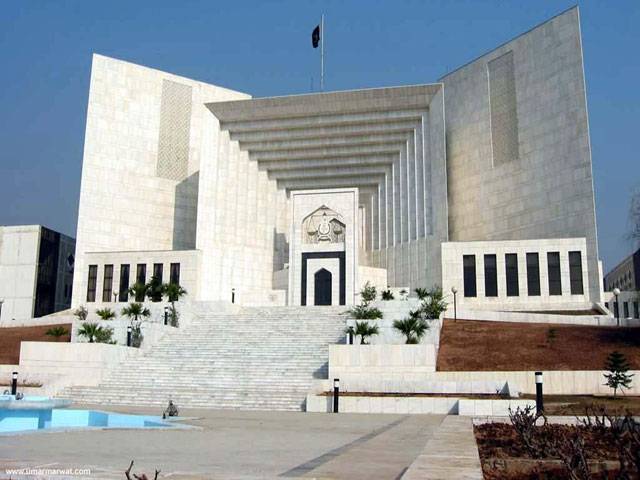ISLAMABAD: The Supreme Court yesterday questioned how an individual on the basis of his own assessment has right to punish an alleged blasphemer. The court asked Mumtaz Qadri’s counsel to assist whether a person could himself decide to punish someone alleged to have committed blasphemy. The lawyer was asked to give examples from Islamic history wherein the individuals acting on their own punished the blasphemers. Mumtaz Qadri, a former commando of Punjab Elite force, assassinated Punjab ex-governor Salmaan Taseer as he allegedly had declared blasphemy law as ‘black law’.
Blasphemy is a sensitive issue and even unproven allegations often trigger mob violence in the country. Since the introduction of this law during Ziaul Haq regime, 80 persons have been awarded sentences at state level while in 40 blasphemy cases the individuals took decision themselves.Justice Asif Saeed Khan Khosa asked how without verifying facts and investigating the matter Qadri presumed that the governor had uttered derogatory remarks. “If everyone himself will start deciding to punish others, who he/she in his/her opinion has committed blasphemy then the society will disintegrate,” the judge remarked, challenging the very notion of vigilante justice in such sensitive matters.
Pakistan’s Law of Evidence says that the hearsay evidence is not acceptable. Justice Dost Muhammad, another of the three judges on the bench hearing the case, said that in many incidents people on the basis of vested interest, greed and sectarian divide were implicated in cases of blasphemy. “We (nation) are divided into sects, tribes therefore the country is no more Quaid-e-Azam’s (united) Pakistan. Qadri’s lawyer Nazir Akhtar cited various ahadith, sayings of the Prophet Muhammad (PBUH), in his two hours long arguments. According to his submission Prophet Muhammad (PBUH) on many occasions had ordered for killing those who had committed blasphemy.
The court said they will not interpret the Islamic teachings and injunctions, as it was beyond their jurisdiction. Justice Khosa said under the constitution the Federal Shariat Court and Appellate Bench of Supreme Court are authorised to do so.The petitioner lawyer complained that Islamabad High Court had not examined the documents that were submitted about Islamic teachings. Justice Khosa said they would patiently hear them and provide them full opportunity. The lawyer believed that something had happened before the incident that prompted Qadri to murder the governor therefore the people, particularly other guards, who were also present on the site of crime, did not fire a single shot.
Qadri’s supporters say he is a very quite person. They said he had murdered the ex-governor on the basis of incitement and abetment of some ‘Ulema’ (religious leaders), as two days ago he had attended a congregation where his mind was made to such action.
Justice Khosa inquired: “As Holy Prophet (PBUH) is not in this world and our society is quite different from (that of) his time then who else should give order for punishing the blasphemer?”Nazir Akhtar said the state is responsible to punish the blasphemer and if it fails then some individuals would have to perform this responsibility. He said an appeal was filed in the Lahore High Court against the governor but Justice Shahid Hameed Dar had dismissed the petition. After that no option was left. The lawyer said even if there are best intentions, the blasphemy law could not be changed. “It is not right to declare it ‘black law’ when it was made in light of Islamic teaching,” he maintained. The court adjourned the hearing, directing Nazir to conclude his arguments today.






